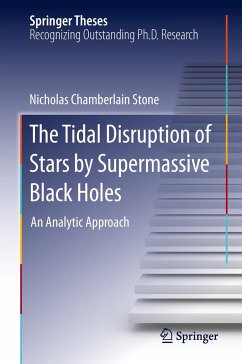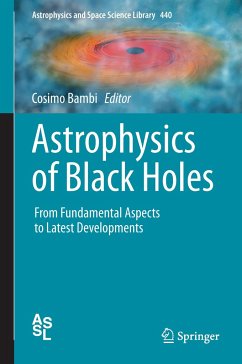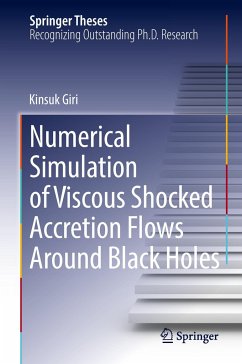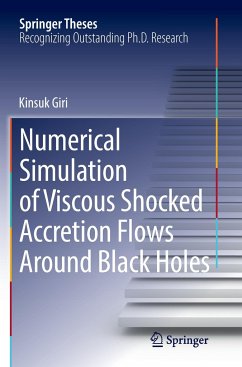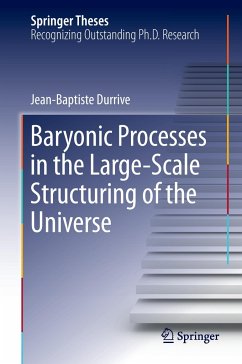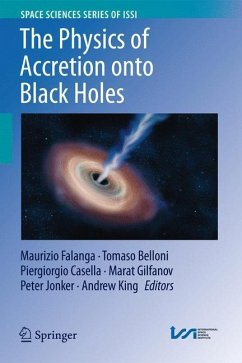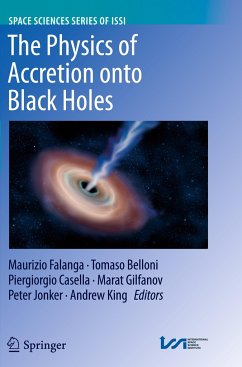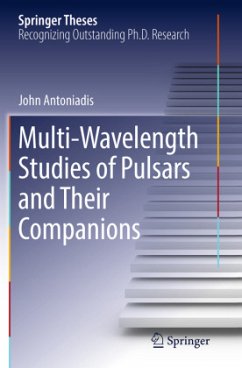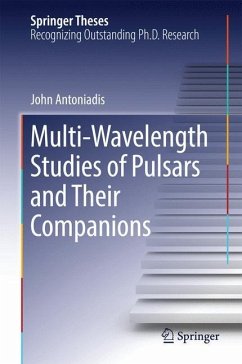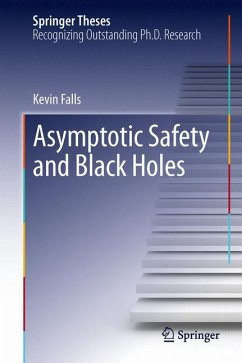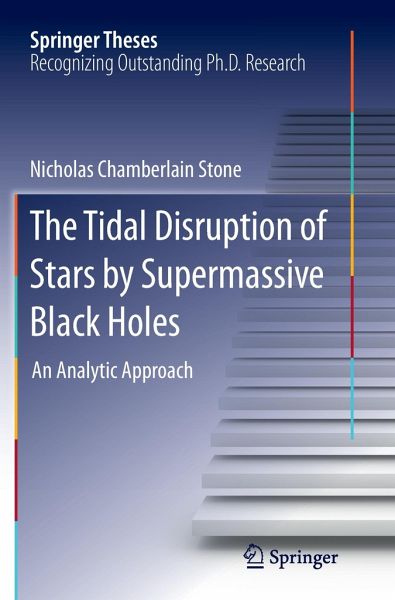
The Tidal Disruption of Stars by Supermassive Black Holes
An Analytic Approach
Versandkostenfrei!
Versandfertig in 6-10 Tagen
75,99 €
inkl. MwSt.
Weitere Ausgaben:

PAYBACK Punkte
38 °P sammeln!
This book provides a general introduction to the rapidly developing astrophysical frontier of stellar tidal disruption, but also details original thesis research on the subject. This work has shown that recoiling black holes can disrupt stars far outside a galactic nucleus, errors in the traditional literature have strongly overestimated the maximum luminosity of "deeply plunging" tidal disruptions, the precession of transient accretion disks can encode the spins of supermassive black holes, and much more. This work is based on but differs from the original thesis that was formally defended at...
This book provides a general introduction to the rapidly developing astrophysical frontier of stellar tidal disruption, but also details original thesis research on the subject. This work has shown that recoiling black holes can disrupt stars far outside a galactic nucleus, errors in the traditional literature have strongly overestimated the maximum luminosity of "deeply plunging" tidal disruptions, the precession of transient accretion disks can encode the spins of supermassive black holes, and much more. This work is based on but differs from the original thesis that was formally defended at Harvard, which received both the Roger Doxsey Award and the Chambliss Astronomy Achievement Student Award from the American Astronomical Society.





